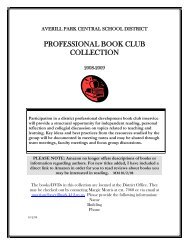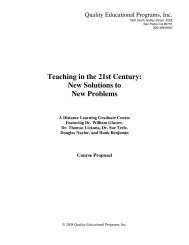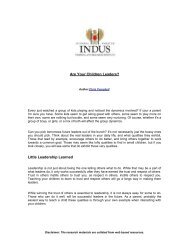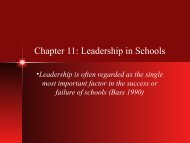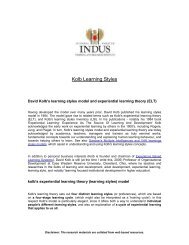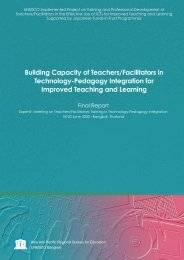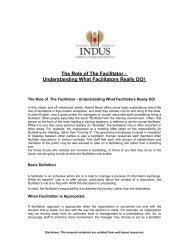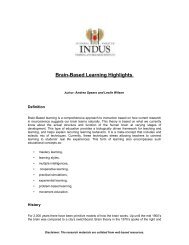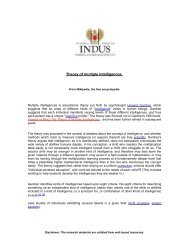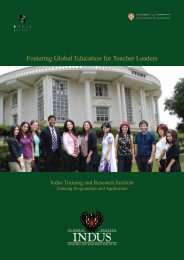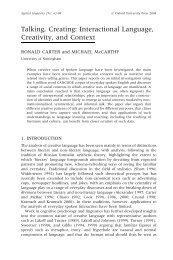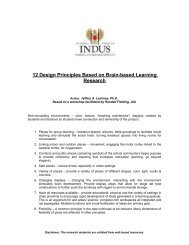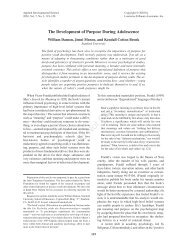Primary Years Programme Making the PYP happen - ITARI
Primary Years Programme Making the PYP happen - ITARI
Primary Years Programme Making the PYP happen - ITARI
- No tags were found...
Create successful ePaper yourself
Turn your PDF publications into a flip-book with our unique Google optimized e-Paper software.
<strong>Making</strong> <strong>the</strong> <strong>PYP</strong> <strong>happen</strong><br />
Implementation for administrators<br />
Why inquiry<br />
The essential activity for keeping our paradigm current is<br />
persistent questioning. I will use <strong>the</strong> term inquiry. Inquiry is <strong>the</strong><br />
engine of vitality and self-renewal.<br />
Pascal, 1990<br />
The <strong>PYP</strong> is committed to inquiry as <strong>the</strong> preferred approach to teaching and learning. However, this<br />
commitment to inquiry is not confined to classroom practices. The <strong>PYP</strong> believes that good schools are<br />
inquiry-based schools in which all members of <strong>the</strong> school’s community are continually reflecting on <strong>the</strong>ir<br />
practice in <strong>the</strong> context of a commitment to continuous personal, professional and institutional improvement.<br />
It fur<strong>the</strong>r believes that:<br />
! <strong>the</strong> approaches to learning it is advocating are relevant outside <strong>the</strong> classroom and will have an<br />
impact on <strong>the</strong> culture of <strong>the</strong> school<br />
! without an understanding of this impact <strong>the</strong> curriculum cannot achieve its potential<br />
! inquiry, as a means of learning, changing and improving is as valid for <strong>the</strong> school as a whole as<br />
it is for a group of students in <strong>the</strong> classroom.<br />
The <strong>PYP</strong> supports <strong>the</strong> view, well documented in research, that:<br />
! improvements in individual classrooms only take pace in <strong>the</strong> context of general school improvement<br />
! <strong>the</strong> adults in a school must model <strong>the</strong> knowledge, skills, attitudes and actions <strong>the</strong>y advocate for<br />
students<br />
! effective schools, like effective classrooms, are places in which purposeful, open-ended inquiry<br />
is a feature of <strong>the</strong> culture<br />
! inquiry enables individuals and groups to clarify <strong>the</strong>ir vision and to refocus on purpose<br />
! effective schools make a commitment to continuous improvement<br />
! effective schools develop <strong>the</strong> habit of collaboration while allowing space for people to be<br />
individuals, just as <strong>the</strong> <strong>PYP</strong> promotes collaboration within <strong>the</strong> community of <strong>PYP</strong> schools while<br />
allowing space for schools to reflect <strong>the</strong>ir own cultures.<br />
Guidelines for Implementation<br />
! Develop <strong>the</strong> habits of reflective practice, of questioning one’s own practice and <strong>the</strong> practices of<br />
<strong>the</strong> school.<br />
! Encourage a climate of inquiry among staff, students, parents, board members.<br />
! Structure <strong>the</strong> process of collaborative decision making as an open-ended inquiry.<br />
! Use this process for <strong>the</strong> development of school policies and products.<br />
© IBO 2000 93



